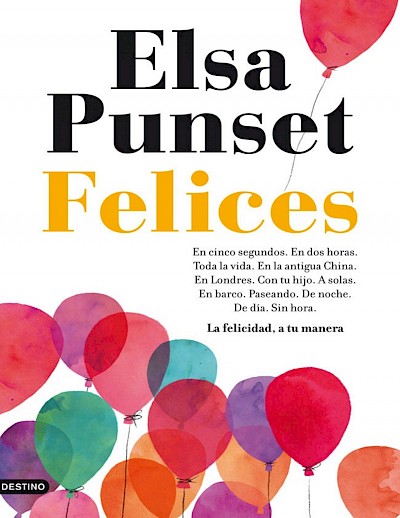"If I had an influence on fairies, I would ask them to grant each child the gift of wonder, a gift so indestructible that it would last a lifetime."
Rachel Carson
Nature speaks a language so subtle that sometimes it is difficult for us to perceive its song, its magic. Trees have their own song: roots are nourished by symbiotic fungi; leaves sniff the air and issue chemical alerts for caterpillars to control parasites; birds scatter seeds; photosynthetic cells embrace the power of the sun ... Everything is related, no boundary or condition is immutable in the natural world. Whole life revolves around our relationships, how we care for, help, and reinforce each other, consciously and unconsciously. And it is that in nature, says biologist and naturalist writer Rachel Carson, “nothing exists by itself. Man is part of nature, and his war against it is a war against himself ».
In 1958, Rachel Carson received a letter from a friend detailing how the use of a pesticide called DDT, launched by planes from the sky, had wiped out any glimpse of life at a local natural sanctuary. The descriptions in that letter of the cruel death of hundreds of birds shocked Carson. Thereafter, he focused his work on conservation, and more specifically on the side effects of the then deregulated use of synthetic pesticides. Focused on DDT, which had been developed in a warlike context to protect soldiers from mosquitoes that transmitted malaria and was used without restriction, as a miracle substance that was sprayed on home and school patios to maximize crops, to kill rodents ... No one knew or talked about the side effects.
Carson got down to business. The result of his work culminated in the publication of his book Silent Spring, a work that has inspired the contemporary conservation movement and a new citizen social conscience. "Humans are facing the challenge, more urgent than ever, to demonstrate our dominance not over nature, but over ourselves," said Carson. But as expected, the fierce and greedy rejection by the chemical industry of the work of Rachel Carson was immediate: she had to endure numerous defamatory campaigns against her and against her publisher, attacks for her gender, insults such as « a childless spinster shouldn't worry about genetics »... Carson, a cancer patient and adoptive mother of her nine-year-old nephew Roger, continued to work and fight for the environmental cause she had ignited, while undergoing medical treatment and took care of the child. "Those who contemplate and recreate themselves in the beauty and mysteries of the planet are never alone or tired of living," he assured.
In 1963, President John F. Kennedy read Silent Spring. He convened a parliamentary commission to investigate, and eventually regulate, the use of pesticides.
Finally, DDT was banned in the United States. Although she was already very ill, Carson testified. "If I had influence with fairies, I would ask them to give each child the gift of wonder, a gift so indestructible that it would last a lifetime," he said. He did not survive to see all that was achieved, but
no doubt he was able to realize what he had put in place: the first federal policies to protect the planet, the United States Environmental Protection Agency and a new public awareness of the fragile interconnection of all the life forms that inhabit our planet.
